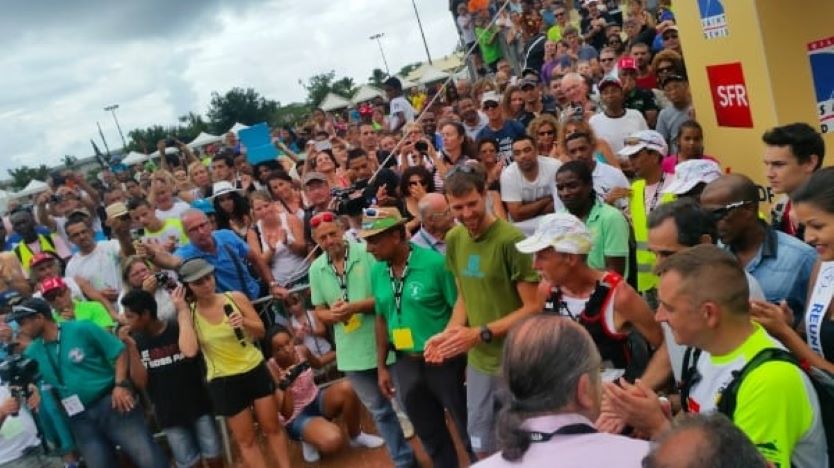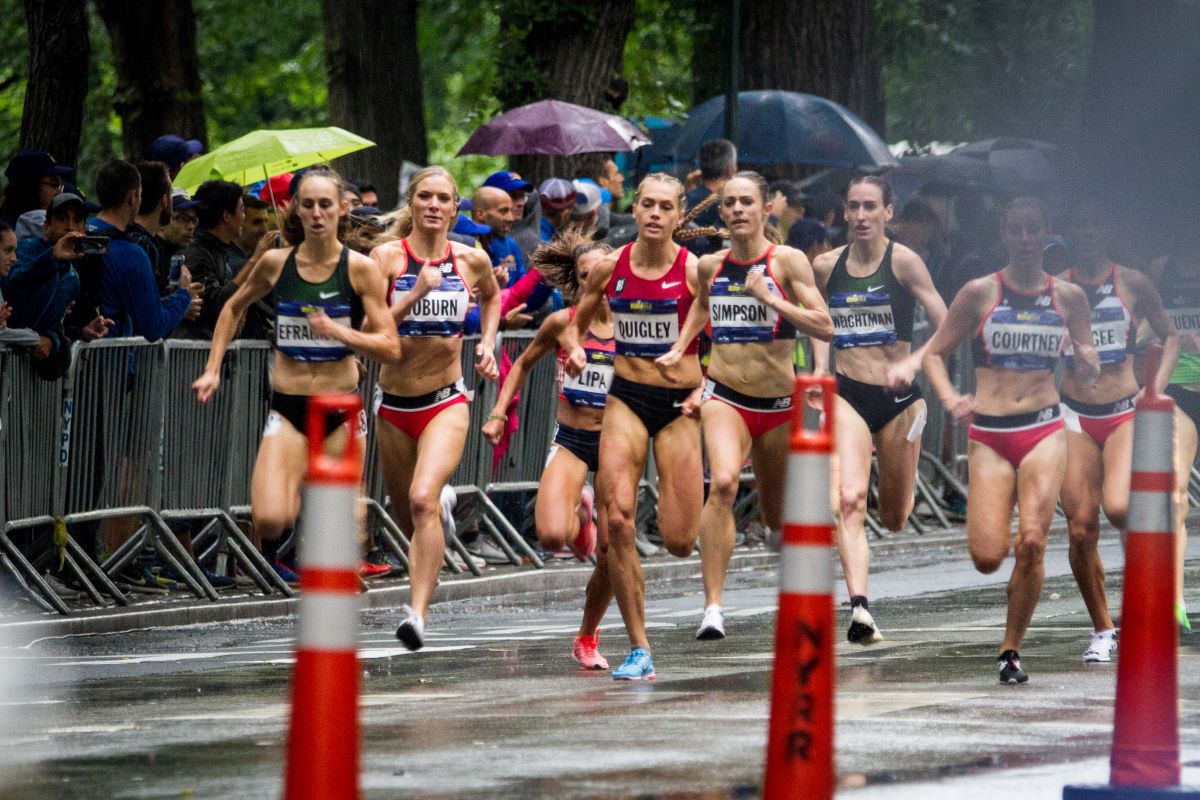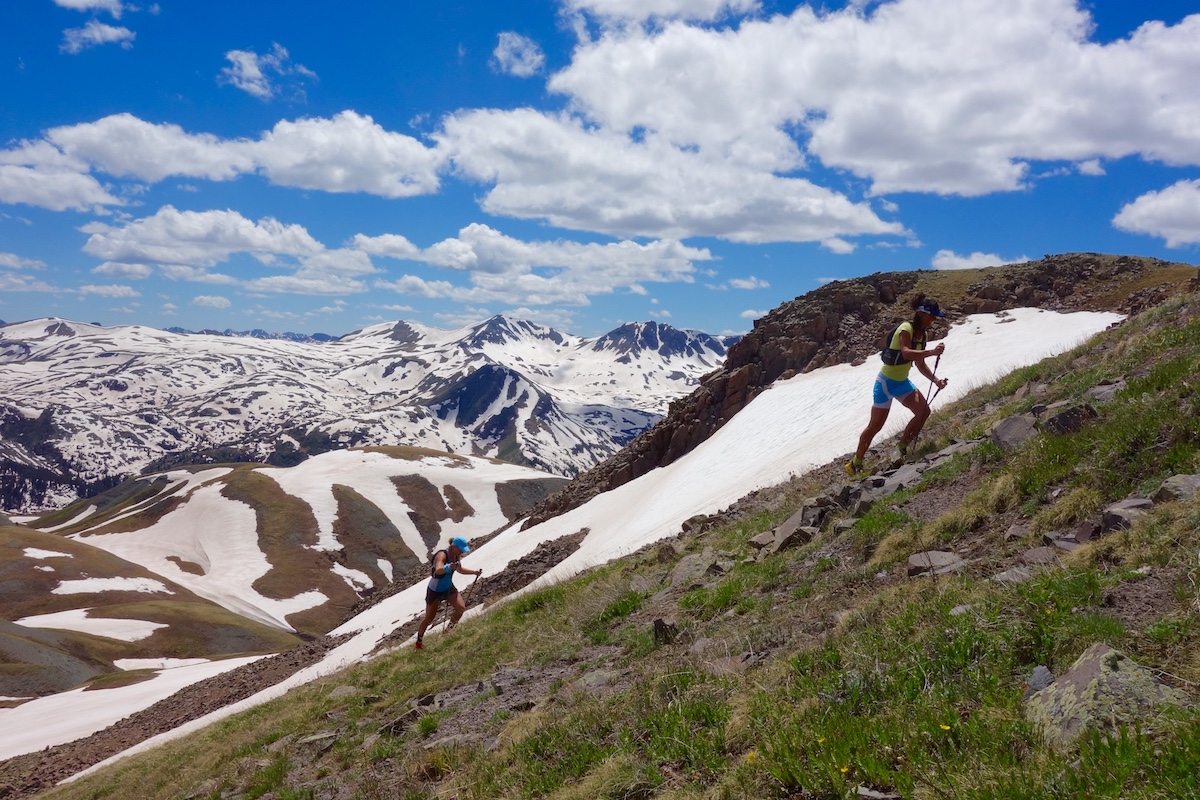During graduate school, I lived and trained in Texas. I used to run by an empty field in the winter months that had a sign which read, “Wildflowers in progress.” I laughed at that sign, positioned on a barren field. But as spring approached, the day inevitably arrived when I would run past the field and suddenly it was no longer barren. It was full of wildflowers of assorted colors and shapes. The flowers had been there all along, in various stages from seed to blossom, making progress beneath the dirt.
Training is like a wildflower field. Progress happens unseen, under the surface, until due season. Suddenly it blooms.
Learning Patience
I have learned a lot about patience in my time as a distance runner. I have learned that breakthroughs in racing are often preceded by seemingly barren stretches of time with little fruit to show for my efforts. I have learned that patience and endurance are companions — that the better I wait, the better I endure.
And I have learned that patience wears sneakers, not slippers. It involves the active, diligent work of preparation as I ready myself for a new season. Passivity is not patience; it’s despair.
The Concept
Patience is the virtue of remaining in difficulty. Tully, a Roman statesman and orator, defines it as the “voluntary and prolonged endurance of arduous and difficult things (1),” and Aquinas points out that one suffers well for a “hoped for good (2).” Patience is connected to endurance. In fact, endurance and patience are linked as a single concept in Greek. The term hupomoné means “patient endurance.” It involves steadfastness or “remaining under a burden.”
Patience plays a support role for many other virtues. It is connected to charity, since it is challenging to love people well when we are impatient with them. It supports resilience, the virtue of recovery. To be excellent in coping with and overcoming adversity (3) requires that we inhabit an uneasy, uncomfortable space of hardship. Patience also serves as a support virtue for fortitude (4). Alongside endurance, it helps one to restrain fear and to stand firm through difficulty.
Patience for Runners
Patience is a virtue that is largely neglected in Western cultural conversations (5). In practice, we often mistake patience for idleness, and we laud impatience as purpose and productivity in a consumerist, work-driven culture. To be impatient is to be perceived as driven or goal-directed, and this is a mistake.
If any population is shielded from these misunderstandings, perhaps it is distance runners. Being patient means to suffer well through something uncomfortable (6), so this is a virtue ripe for development in distance running — the sport that offers practice in longsuffering. There is a great deal of patience involved in endurance sports. Here are a few lessons I have learned about it along the way.

At the 2014 Diagonale des Fous, François D’Haene runs in to the finish with the last-place finisher, a Diagonale des Fous tradition. Patience is a virtue, at both ends of the field. Photo: Jason Schlarb
1. Patience Wears Sneakers, Not Slippers.
Back in 2013, American 1,500-meter Olympian, Jenny Simpson, shared advice she received from her dad. He told her to “win slowly.” Jenny explained, “This means, make good decisions every day and take care of what seems like the mundane. The daily grind is the hard part, and it doesn’t get a lot of attention compared to the races. But this slow progress is what makes champions (7).”
Waiting for races is not idle time. Patience — both in races and for races — involves work over an extended period. The process of training is difficult and sometimes frustrating, and it takes place unseen, under the soil, before it yields any flowers. But being a patient steward of one’s gifts, day after day, is — as Jenny explains — “what makes champions.”

Jenny Simpson at the 2018 5th Avenue Mile. She won the one-mile road race in a time of 4:19. Photo: Dave Atkinson – CQ-7448, CC BY 2.0, Commons.wikimedia.org/w/index.php?curid=72728686
2. Practice Makes Patience.
When friends ask me about our sport, I often say that it is conceptually simple but difficult in execution. In plain terms, distance running is just “remaining.” It is continuing to do what one is already doing. This sounds simple. It is simple. But remaining is tiring. It takes a lot of physical strength to do it well. Remaining makes my lungs burn. It fatigues my legs. And, when I am “remaining,” I would often rather do anything else.
Thankfully, patience, like other virtues, is acquired by practice. We become better at it by repeatedly putting ourselves in situations where we can practice suffering well. This is great news for impatient people. It takes the guesswork out of how to improve. And, who knows, maybe this practice will make a difference in how we wait for other things in life outside of sport.
3. Staying Patient Is a Hopeful Act.
Each season, as I return to fitness following an off-season, I have the same period of (figuratively) staring at a barren field, wondering whether my work has been in vain. And, each season, eventually there are flowers. Patience is sustained by placing trust in some desired, good end. If you lack confidence in that thing’s eventuality, it is hard to sustain the resolve to wait well and to do the work required to facilitate its coming to fruition.
In running, this is just the process of training. Progress is hidden from view, and at this point, I am confident that my training will not be for naught. But I sometimes wonder about the things outside of sport that I wait on, or put my trust in. I wonder whether their respective seasons of patience will yield flowers, instead of dirt. Not all patience is good patience. We need to suffer well for good ends, or else our suffering is in vain.

Missy Gosney (right) and Anna Frost putting in the hard miles for the 2016 Hardrock 100. Photo: iRunFar/Meghan Hicks
Final Thoughts
Patience is the virtue of remaining in difficulty. It is active, not passive, and without it, we struggle to endure. This is a difficult virtue to develop in our immediacy and convenience culture, and it is rarely celebrated as worthwhile. But if we are to deal well with the suffering that is an unavoidable feature of a flourishing, human life, we need to develop this virtue.
Thankfully, distance running offers practice in waiting well.
Call for Comments
- Do you find it easy to have patience with your training?
- Are there any tips and tricks for this that you’ve found helpful?
References
- Tully De Invent. Rhet. ii, as found in T. Aquinas. Summa Theologiae II.2.136.5
- T. Aquinas. Summa Theologiae II.2.136.5
- N. Snow. Resilience and hope as a democratic civic virtue. In Virtues in the Public Square: Citizenship, Civic Friendship, and Duty, ed. James Arthur (London: Routledge Press), 2019, pp. 124-139.
- T. Aquinas. Summa Theologiae II.2.136.4
- S.A. Schnitker et al. (2017). The virtue of patience, spirituality, and suffering: Integrating lessons from positive psychology, psychology of religion, and Christian theology. 264.
- S.A. Schnitker, B. Houltberg, W. Dyrness, & N. Redmond. (2017). The virtue of patience, spirituality, and suffering: Integrating lessons from positive psychology, psychology of religion, and Christian theology. Psychology of Religion and Spirituality 9(3): 264-275, 265.
- Best running advice ever. Runners World Magazine. 31 July 2013. Web <https://www.runnersworld.com/advanced/a20799195/best-running-advice-ever/>

